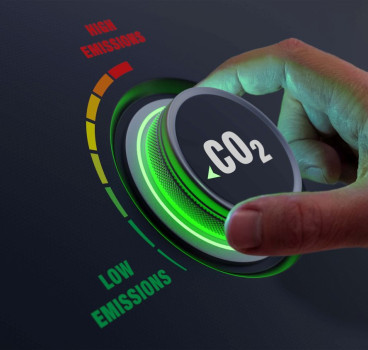A call for a more sustainable to approach to construction waste
The European construction industry is a major contributor to the continent's economy, but it also carries a significant environmental burden. Construction and demolition accounts for a staggering 30-35% of all waste generated in the EU, according to the European Commission. This translates to millions of tons of concrete, bricks, wood and other materials ending up in landfills each year, but this is all about to change, writes John Ridgeway.
Recognising the need for a more sustainable approach, the European Recycling Industries' Association (EuRIC) has called for a radical overhaul of the existing rules governing C&D waste management. Their vision? A circular economy for construction, where waste is minimised and resources are continuously reused and recycled.
While a specific date for the overhaul announcement is not available, EuRIC's call aligns with the broader Green Deal initiative launched by the European Commission in 2019. The Green Deal prioritises circular economy principles and aims to achieve climate neutrality in Europe by 2050.
In simplistic terms, EuRIC proposes a major shift in emphasis, by mandating the use of recycled materials in construction projects. This would create a guaranteed market for recycled products, incentivising investments in recycling infrastructure and technology. Currently, the market for recycled construction materials faces uncertainty, hindering growth and innovation in the recycling sector.
All this means that construction companies will need to adapt their procurement practices and source materials from certified recycling facilities. However, increased demand for recycled materials could lead to price fluctuations in the short term, but this is expected to stabilise as the market matures. Collaboration between construction and recycling sectors will also be crucial to ensure the quality and availability of recycled materials.
A critical aspect of EuRIC's proposal focuses on improving waste separation during demolition activities. Currently, mixed waste streams make it difficult to sort and recycle valuable materials. Dedicated training for demolition crews and investment in proper sorting infrastructure are key to ensuring high-quality recycled materials.
Following this recommendation, demolition companies will need to invest in training their personnel and will potentially have to implement new sorting technologies. Project timelines may also need to factor in additional time for careful waste separation.
A more sustainable future for European construction
Equally as important, this proposed overhaul by EuRIC has the potential to significantly transform the European construction industry. By minimising landfill waste and promoting resource reuse, the construction sector's carbon footprint can be significantly reduced.
Increased recycling rates will also lessen the demand for virgin resources like sand and gravel, which are becoming increasingly scarce and investments in recycling infrastructure and technology will create new jobs and stimulate growth in the circular economy.
However, implementing new waste separation practices and adapting to recycled materials may incur initial costs for construction companies. Robust certification processes will also be needed to ensure the quality and consistency of recycled construction materials. Furthermore, shifting to a mandatory use of recycled materials may require adjustments in supply chains and procurement practices.
While EuRIC's proposals offer a comprehensive framework for transforming the construction waste landscape, it's essential to recognise that many European countries have already taken significant steps towards sustainable waste management.
For instance, Germany has been at the forefront of recycling and waste management for decades. Its robust system of waste separation and collection has led to high recycling rates across various material streams, including construction waste. The German Green Dot system, a packaging take-back scheme, has also influenced recycling practices in other European countries. Similarly, the Netherlands has implemented innovative policies to promote the reuse and recycling of construction materials, such as the Circular Economy Act, which sets ambitious targets for reducing waste and increasing resource efficiency.
These national-level initiatives demonstrate that effective C&D waste management is achievable with the right policies, together with infrastructure and industry collaboration. By analysing successful case studies, policymakers and industry stakeholders can identify best practices and tailor them to their specific contexts.
Moreover, advancements in material science and recycling technology are continually pushing the boundaries of what is possible in the construction waste sector. Researchers are developing new methods for extracting valuable materials from construction debris, such as recovering aggregates from concrete or extracting metals from electronic waste embedded in construction waste. These innovations have the potential to increase the value of recycled materials and make them more competitive with virgin resources.
Additionally, the development of sustainable building materials made from recycled content is gaining traction. For example, recycled concrete aggregates can be used to produce new concrete products, reducing the demand for natural resources. These advancements not only contribute to a circular economy but also enhance the performance and durability of construction materials.
To support this initiative, EuRIC has already called for the widespread adoption of Environmental Product Declarations (EPDs) across construction materials. EPDs provide a standardised method for disclosing the environmental impact of a product throughout its lifecycle, including resource extraction, production, use and disposal.
Impact on the industry:
This ensures that architects, engineers and specifiers will have access to clear environmental data, allowing them to make informed choices about building materials. Construction companies can also demonstrate their commitment to sustainability by using materials with lower environmental footprints.
To fully realize the potential of a circular construction industry, it is crucial to combine the ambitious goals outlined by EuRIC with the practical experience gained from regional initiatives and the latest technological breakthroughs. By working together, policymakers, industry representatives and researchers can create a sustainable future for the European construction sector.
To sum up, the call for an overhaul of C&D waste management presents both challenges and opportunities for the European construction industry. By embracing the principles of a circular economy, the industry can play a crucial role in achieving the European Green Deal goals. Collaboration between all stakeholders – legislators, policymakers, construction companies, recyclers and consumers – will be essential to navigate the transition and ensure a sustainable future for European construction.
Additional Blogs

The unseen carbon cost of late design changes
There is a particular moment in almost every project when someone says, “It’s only a small change.” A wall shifts half a metre. A grid tightens. A plant room grows. A façade is reconfigured to...
Read moreWhen compliance becomes the enemy of good design
There is a particular comfort in compliance. It comes in the form of certificates, checklists and sign-offs. It reassures clients, satisfies insurers and protects professionals from liability. In an...
Read more

The construction industry’s addiction to new acronyms
There are two certainties in construction. One is that every project will take longer than the programme suggests. The other is that, somewhere between concept and completion, someone will introduce...
Read more